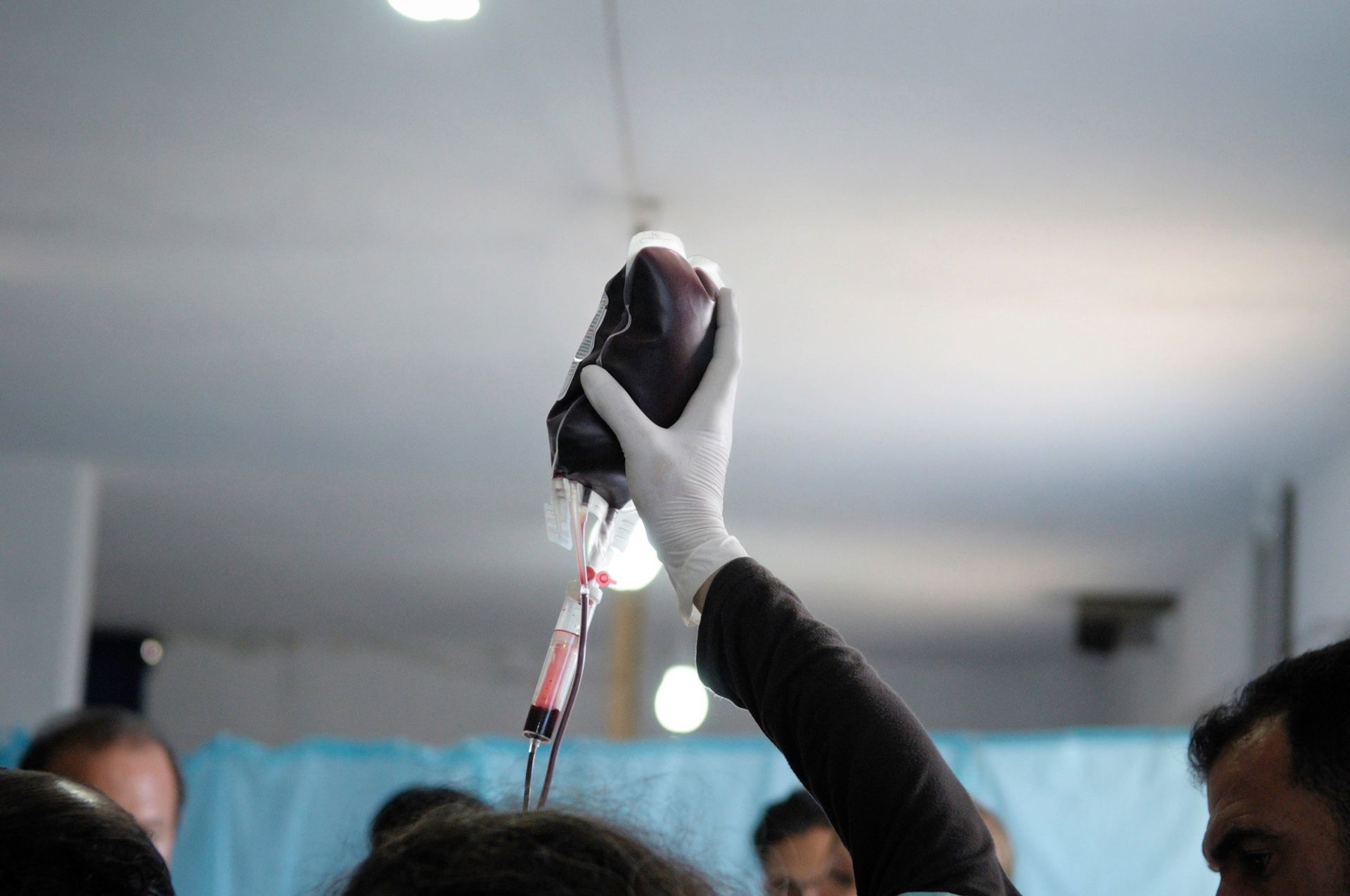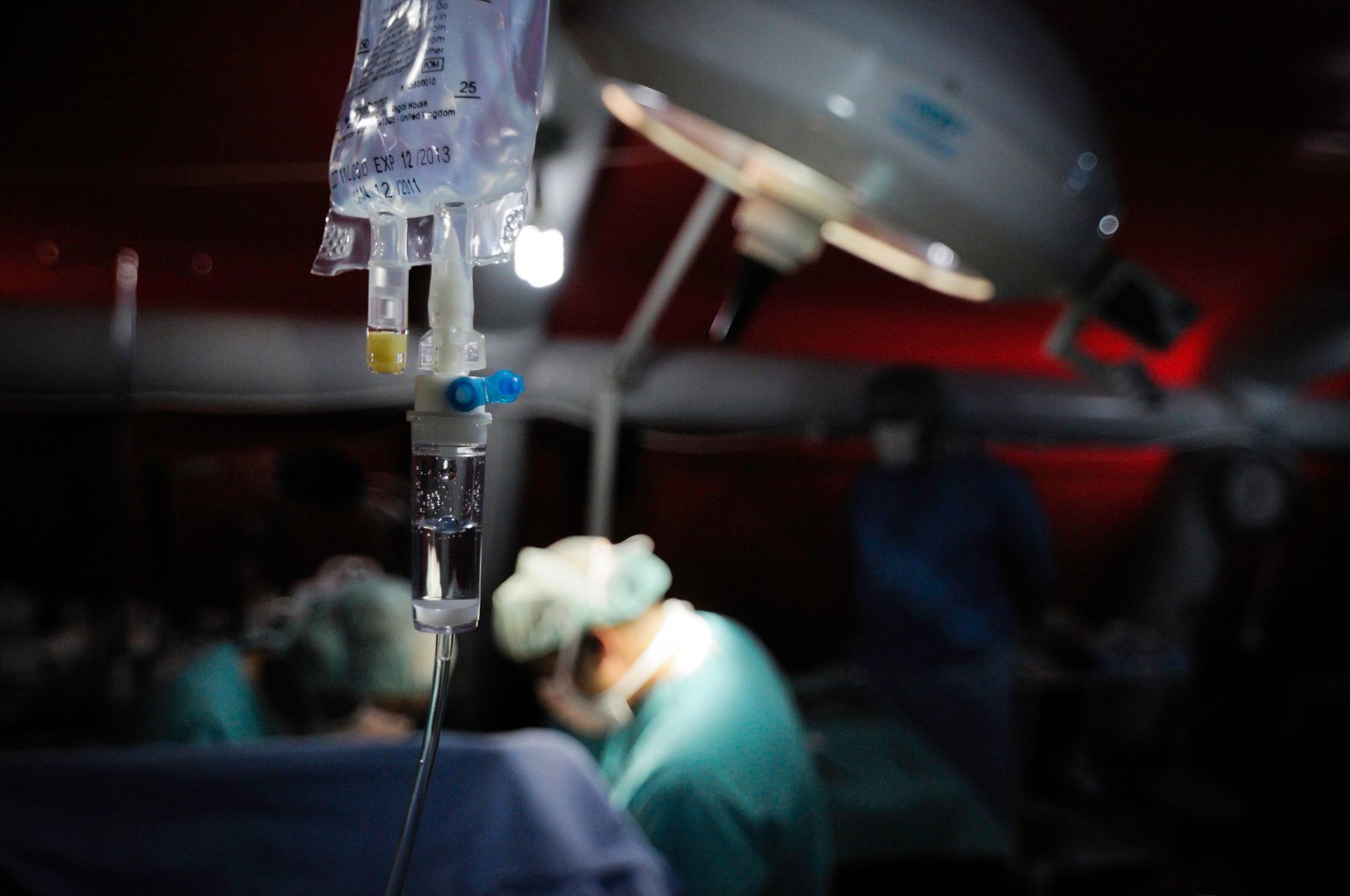In Syria the number of people in need of urgent medical care keeps increasing. MSF runs six hospitals, four health centres and several mobile clinic programmes inside Syria. While these medical programmes are undoubtedly saving dozens of lives every day, the extremely high insecurity means that MSF's reach is limited. Throughout most of the country, there are places where medical services are either limited or totally absent.
“Before this war people in Syria had good quality healthcare,” says Steve RUBIN, a surgeon in one of MSF's hospitals in Syria. “Many Syrians really want that care again. But in this area, other than us, all the other medical facilities are doing war trauma. So they come here because this is their only option.”
The hospital where Rubin was working is typical of MSF's work in Syria. Before the war people could drive 20 minutes on a major highway to a large reference hospital. That hospital still exists, but now a frontline of the war lies in the way, preventing tens of thousands of people from going there. To offer an alternative reference facility, MSF converted a disused chicken farm into a makeshift hospital.
Besides the injuries from shrapnel and fragments of bomb blasts, there are countless numbers of people affected by common health problems; pathologies that are entirely manageable in a normal setting, but can quickly become deadly in the midst of a war when the usual healthcare options are suddenly no longer available. Diabetes, hypertension, asthma and maternal health complications are all taking their toll.
“Our operating theatre is an inflated tent,” says Rubin. “We don't have everything we need, but we make it work. You tell yourself - I'm going to do the best I can do with what I have… And save as many lives as I can.”
“
MSF has also set up an out-patient department in a converted school nearby, and the team runs weekly mobile clinics to villages where thousands of people have gathered, having fled intense fighting elsewhere in Syria. Between all these services, this project conducts around 4,000 consultations and around 50 surgical operations each month.
“We work as a beehive,” says one of the Syrian nurses in the A&E section of the building. “Not only war-related cases are admitted, the hospital also receives normal medical cases, such as flu or medical emergencies, paediatrics… everything , even blood transfers. It's similar to any regular hospital.”
A 36-year-old woman who has come to have a dressing changed explains the difficulty for people in the area to find medical treatment. “The problem is there is no normal life. From a medical perspective, there are no medicines, nowhere to go, no hospitals. Many people in my family have fallen ill - two uncles, my mother, and others. They all found difficulties getting treatment. Medicine has become a rare commodity here.”
She pauses and then adds, “If it weren't for this hospital being here, I'd be among the dead now.”
Since the conflict began up to end June 2013, MSF teams in Syria have carried out more than 55,000 medical consultations, 2,800 surgical procedures, and 1,000 deliveries. MSF teams have also provided more than 140,000 consultations for Syrian refugees in neighbouring countries.



